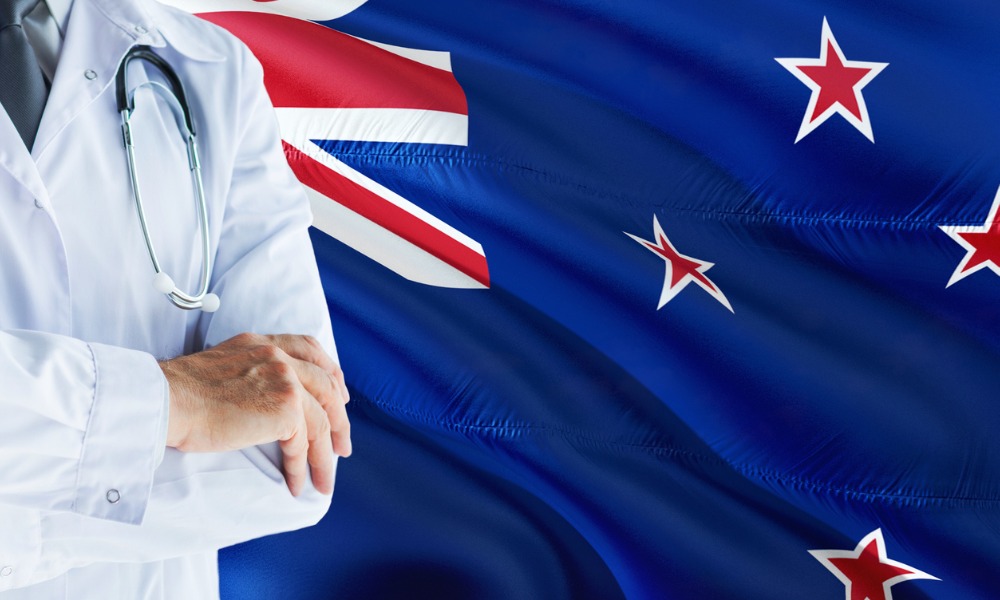
'Our claim simply seeks a CPI adjustment this year'

Senior doctors and dentists have voted to carry out industrial action this September after pay negotiations with Te Whatu Ora fell apart, according to the Association of Salaried Medical Specialists (ASMS).
More than 80% of ASMS members voted to carry out strikes for two to four hours on September 5, 13, and 21, the ASMS announced on Monday.
The strike comes after pay negotiations with Te Whatu Ora broke down, with the association's request for a Consumer Price Index (CPI) adjustment for this year rejected.
According to the ASMS, Te Whatu Ora is insisting on another year of real-terms pay cuts, after two years of cuts that amounted to a real-terms pay cut of 11%.
"Te Whatu Ora will not even pay senior doctors and dentists the bare minimum to ensure their staff do not take a real-terms pay cut for the third year in a row," ASMS Executive Director Sarah Dalton said in a statement.
The association said the strike wants to send a message that "enough is enough."
"Every employee in New Zealand deserves to have the value of their income maintained, especially when they are performing critical front-line tasks and being asked to cover as many staffing shortages as our doctors currently are," Dalton said.
About 5,000 senior doctors and dentists will participate in the strike, the New Zealand Herald reported.
The association, however, assured that the strikes were timed to disrupt patients as little as possible.
"Doctors care about their patients but have decided failure to protect the value of their work will only result in more doctors leaving New Zealand or declining to apply for jobs here," Dalton said.
Te Whatu Ora chief people officer Andrew Slater said they already received the strike notice and are working to see if the strike can be averted, the New Zealand Herald reported.
"In the meantime, contingency planning is under way to ensure safe and appropriate care for patients in the event action does go ahead," Slater told the news outlet.
According to Slater, they were disappointed that the association did not accept their offer, which would see all senior doctors get $15,000 to $26,000 pay increase and a lump sum of about $4,000.
The ASMS, however, disputed this claim in a later statement.
"We are bargaining over increases to the base salary steps for senior doctors and our claims range from $13,786 to $17,417 on each step. Te Whatu Ora have not offered $26,000 on any base rate," Dalton said.
"Our claim simply seeks a CPI adjustment this year. Te Whatu Ora continue to offer real pay cuts in the face of ongoing medical workforce shortages."
The situation comes amid major staffing shortages within New Zealand's healthcare system, including an estimated gap of 1,700 doctors and 220 dental or oral health therapists and hygienists.
ASMS president Julian Vyas accused the government of ignoring their concerns about short staffing, which has led to overwork and burnout among healthcare workers.
"For years and years, those in charge have failed to address the critical shortage of senior dentists and doctors, and simply expected us to keep putting up with it all this," Vyas said. "And now, on top of everything else, we are being asked to swallow another real-terms pay cut."
According to the ASMS president, many members within the workforce are considering a job overseas or joining the private sector.
"This will leave the public sector further short staffed, meaning patients have even less access to care, and senior staff even more fatigued and burned out. If there is no end in sight, even more specialists are likely to leave. The first battle is to get our pay just to keep up with CPI," Vyas said.
To address the current situation, the government released in July a Healthcare Workforce Plan that outlines six actions to relieve current workforce pressures within the industry.
"Global workforce shortages and long-term under investment have put a lot of pressure on our dedicated health workers and these challenges aren't unique to New Zealand," said Health Minister Ayesha Verrall in a statement.
"Over the next year, stabilising our domestic workforce and supporting them to manage the day-to-day pressures will be a key focus. Our healthcare workforce spans across a variety of practices, and each of these workers is vital."